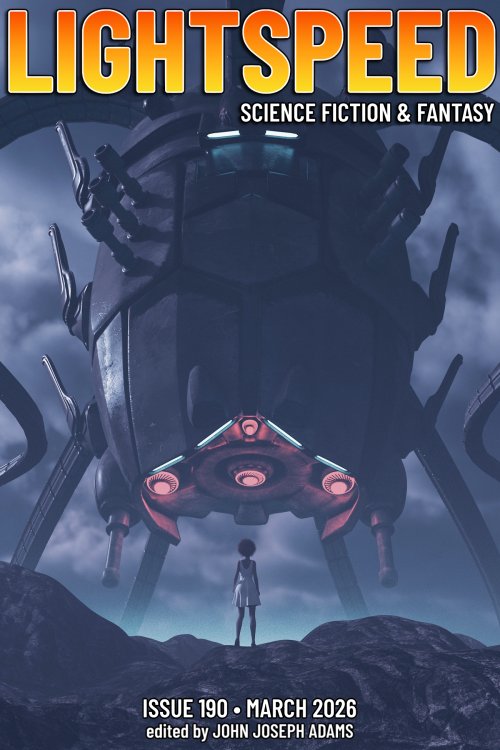Mechanize My Hands to War
Erin K. Wagner
Hardcover/eBook
ISBN:9780756419349
DAW Books, December 17, 2024, 320 pgs
 In 2061, two soldiers lead a raid against an anti-android child militia led by their twisted foster father. In 2060, two military androids commit an atrocity that begins to change the way their kind is perceived. In 2058, two AI-powered service androids discover that they’re more than what they’re made for. In 2012, a neglected teen sees the effects of poverty and frustration in his Appalachian community and vows to create justice, somehow, somewhen. In every year, beings yearn for connection, and the ways they try to find it create power imbalances and suspicions that can take generations to understand.
In 2061, two soldiers lead a raid against an anti-android child militia led by their twisted foster father. In 2060, two military androids commit an atrocity that begins to change the way their kind is perceived. In 2058, two AI-powered service androids discover that they’re more than what they’re made for. In 2012, a neglected teen sees the effects of poverty and frustration in his Appalachian community and vows to create justice, somehow, somewhen. In every year, beings yearn for connection, and the ways they try to find it create power imbalances and suspicions that can take generations to understand.
Although the title promises a war, there really aren’t much more than a few senselessly violent militia skirmishes in this book. Instead, this twisty, asynchronous timeline somehow manages to pull elements from every anxiety-inducing headline of the recent past and confine them to the small spaces of interpersonal relationships. Most of this book is set in the near-ish future, and while it’s not quite dystopic, most of the imagined results of ubiquitous AI, climate change, corporatized agriculture, child labor, and eerie advancements in robotics aren’t particularly positive. They also don’t feel that big, here. This is very much about technology’s intersection with individual lives, not global conflict.
There’s a lot of big sociopolitical questions raised by conditions in 2061 Appalachia, and Wagner only hints at most of the answers and barely gives us any resolution at the end. Instead, we get to view this world, and all that’s happened to it, through a prism of thought and feeling, methodically examined and reexamined. We see the same events retold through multiple perspectives, focusing on intentions, misunderstandings, and the few brief shining moments when living creatures manage to understand each other perfectly, despite all. Although it’s an emotionally-focused book, the writing is actually very straight-forward and no frills, with just enough description to keep from being dry.
I’m not going to lie to you all—at first I really didn’t pick up what this book was putting down. I wanted war. I wanted cool battle AI unencumbered by deep moral crises. I wanted longer, grittier glimpses of climate-crisis Appalachia. I wanted a fuller backstory for the characters we’re initially led to believe are the villain and the heroes. In short, I wanted the sort of self-aware, crapsack world, renegade AI adventure that we’ve all come to expect.
I got none of that, and neither will you, but that doesn’t mean this isn’t worth reading. What I did get was a look at how top-down adoption of new technology can influence regular people in very realistic ways, and how fear of what we may create can warp entire lives. I got a very thoughtful meditation on how what is made and what is felt can converge and separate, set against a rural, yet futuristic backdrop. I got a challenging ending that feels more like the beginning of something new than anything else—but then, isn’t that what all endings are?
And I did get at least two big gunfights, but there’s a reason I’m not using any character names or giving too many details. Putting the full story of those fights entirely together across different years and different viewpoints is one of the most interesting things about this book, and I don’t want to ruin it for anyone. All I’ll say is this: don’t expect justice. Do expect tears.
Enjoyed this article? Consider supporting us via one of the following methods:










